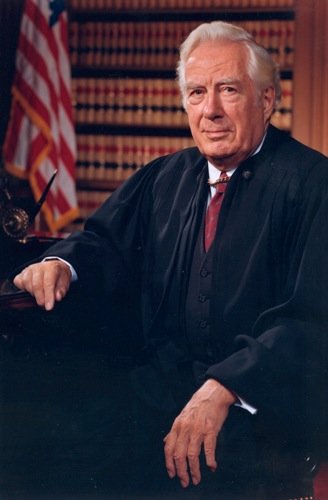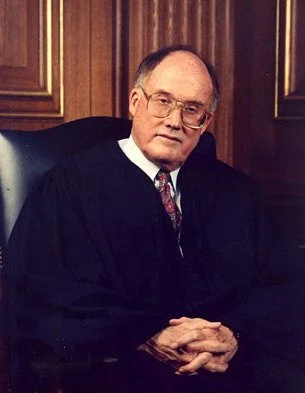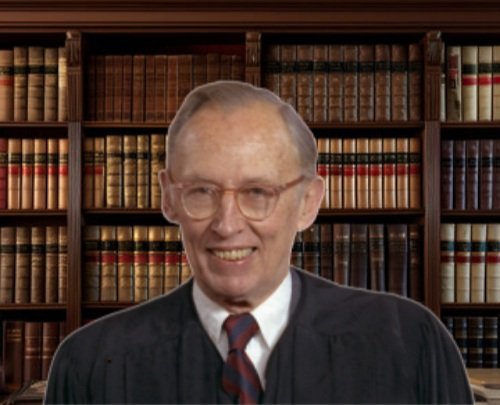World-Wide Volkswagen Corp. v. Woodson
Key Principle
Purposeful Availment: a defendant’s contacts in the forum state must make it more than just merely foreseeable that they could be subject to suit there; they must purposefully avail themselves of the privilege of conducting activities within the forum State such that they have clear notice that they could be subject to suit there.
Case Overview
CITATION
ARGUED ON
DECIDED ON
DECIDED BY
444 U.S. 286
Oct. 3, 1979
Jan. 21, 1980
Legal Issue
Was Oklahoma’s exercise of personal jurisdiction over nonresident defendants, whose only connection to the state was a single car involved in an accident, in violation the Due Process Clause of the Fourteenth Amendment?
Holding
Yes, defendants must purposefully avail themselves in the forum state such that they have clear notice that they could be subject to suit there.
World-Wide Volkswagen’s HQ in Wolfsburg, Germany | Credit: Vanellus Foto
Background
In 1976, Harry and Kay Robinson purchased a new Audi from Seaway Volkswagen, Inc. (Seaway) in New York State. The following year, the Robinsons moved to Arizona. While driving through Oklahoma on their way to their new home, the Robinsons got in a car accident when another car struck their Audi from behind, causing a fire that resulted in severe burns to Kay Robinson and her two children.
The Robinsons subsequently filed a lawsuit in the District Court for Creek County, Oklahoma, alleging that their injuries resulted from the defective design of the Audi’s gas tank and fuel system. The Robinsons joined as defendants Audi NSU Auto Union Aktiengesellschaft (the manufacturer), Volkswagen of America, Inc. (the importer), World-Wide Volkswagen Corp. (the regional distributor), and Seaway (the retail dealer). Seaway and World-Wide Volkswagen entered special appearances to argue that Oklahoma’s exercise of jurisdiction over them would offend the limitations on their jurisdiction imposed by the Due Process Clause of the Fourteenth Amendment.
World-Wide Volkswagen and Seaway are both incorporated in New York and have their principal place of business in New York. They conduct business in New York, New Jersey, and Connecticut, and there is no evidence that either do any business in Oklahoma. The District Court rejected World-Wide Volkswagen’s due process claim, so they sought a writ of prohibition in the Supreme Court of Oklahoma to restrain the District Judge, Charles S. Woodson, from exercising personal jurisdiction over them. They renewed their contention that, because they had no “minimal contacts” with the State of Oklahoma, the actions of the District Judge violated their rights under the Due Process Clause. The Supreme Court of Oklahoma denied the writ, holding that personal jurisdiction was permissible under the state’s “long-arm” statute. SCOTUS then granted certiorari.
Summary
6 - 3 decision for World-Wide Volkswagen
World-Wide Volkswagen
Woodson
White
Brennan
Burger
Powell
Stevens
Marshall
Stewart
Blackmun
Rehnquist
Opinion of the Court
Writing for the Court, Justice Byron White reaffirmed the holding from International Shoe v. Washington that state courts may exercise personal jurisdiction over a nonresident defendant only if they have “minimum contacts” in the forum state such that the maintenance of the case wouldn’t offend the “traditional notions of fair play and substantial justice”, and further held that “it is that the defendant’s conduct and connection with the forum State are such that he should reasonably anticipate being haled into court there.” Justice White further explained that “[w]hen a corporation ‘purposefully avails itself of the privilege of conducting activities within the forum State’. . . it has clear notice that it is subject to suit there, and can act to alleviate the risk of burdensome litigation by procuring insurance, passing the expected costs on to customers, or, if the risks are too great, severing its connection with the State.”
In this case, Justice White found that World-Wide Volkswagen conducted no business, closed no sales, performed no services, and solicited no business in the state. Thus, thy had no contacts in the State of Oklahoma. Justice White rejected the argument that the mobility of automobiles made it foreseeable that the car would be in Oklahoma, explaining that foreseeability alone is insufficient to establish jurisdiction under the Due Process Clause. He also disregarded the argument that World-Wide Volkswagen derived substantial revenue from goods used in Oklahoma and should therefore be purposefully availed there, finding the connection too small to justify jurisdiction. Ultimately, Justice White held that World-Wide Volkswagen’s lack of purposeful availment of Oklahoma’s laws or market meant they could not reasonably anticipate being haled into court there.









